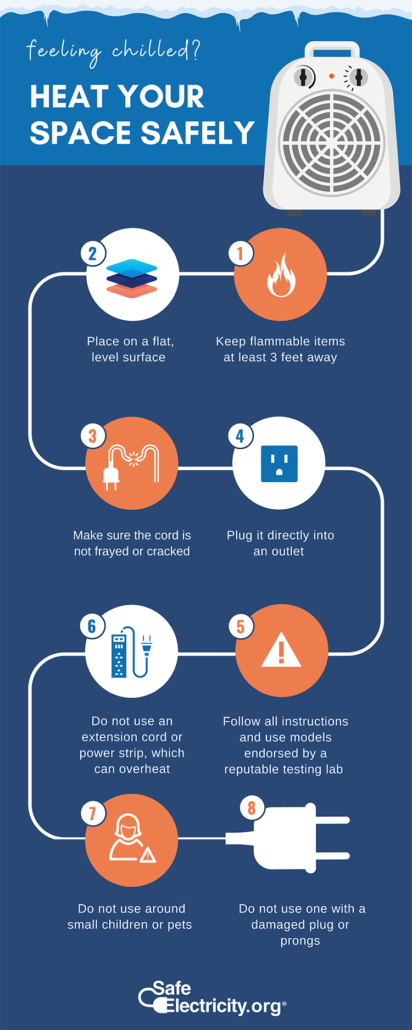Shopping for a space heater? Choose wisely

If your home heating system does not deliver the toasty warmth you want or you would like to dial down your thermostat to save on your energy bill, a space heater can help make up the difference.
Multiple types exist on the market, but the most important thing to remember is to buy one that you can operate safely.
Dispose of old space heaters with exposed coils, those that are dangerous to use (e.g., worn or cracked cords) or those that operate inefficiently. Many that are available today have safety features that older versions do not, such as timers, tip-over prevention or auto shut-off.
Before you purchase an electric heater, determine the square footage of the space you want to warm and whether you have a safe spot to place it. Inefficient or excessively large options will only run up your electric bill without much benefit to you or your family.
Types of space heaters include the following:
• Metal coil and fan: Perhaps the most common and affordable type of space heater, this type uses electricity to heat a metal coil that is safely tucked inside. The fan(s) suck cold air from the room, heat it, and redistribute it at a higher temperature.
• Ceramic radiant: Similar to the metal coil variety, these space heaters also include ceramic plates inside. They absorb and store heat so that it radiates outward, even after you turn the heater off. Quick and long-lasting radiant heat makes these some of the most efficient space heaters.
• Infrared: These larger and usually more expensive space heaters use electromagnetic waves to heat objects in the room. In other words, your furniture, walls and you are heated up safely, so the increased temperature radiates out from everything. This technology is often used in fake fireplaces.
• Radiator-style oil: If you like the appearance of old-fashioned radiators or need something larger without a fan, consider an oil-filled space heater. An upside is that these radiate a lot of heat after they are turned off; the downside is that the unit itself can get quite hot and increase the risk of burns.
No matter what type of heater you choose, there are safety precautions you should follow. These will help prevent house fires, property damage, and injury:
• Use a space heater with a minimum of three feet of clearance on all sides.
• Do not put a heater in a doorway or high-traffic area in the home.
• Place the heater on a flat, safe surface.
• Consider using one with built-in safety features.
• Do not plug one into an extension cord.
• Never leave a space heater unattended; unplug it and put it away when not in use.
To learn more about electrical safety, visit Steele-Waseca Cooperative Electric’s website, swce.coop, or SafeElectricity.org.

LIFE+
#swceLIFE+





